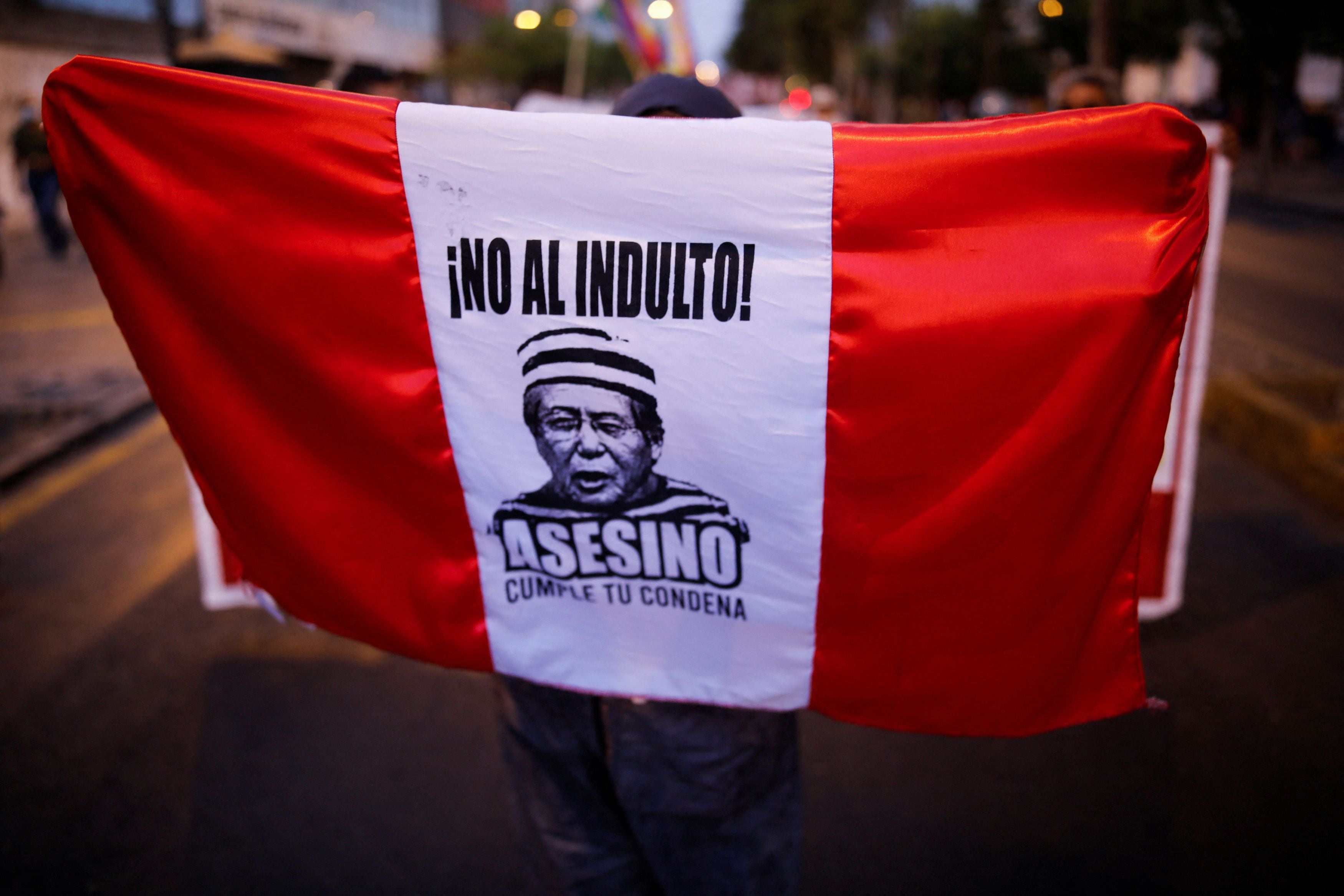
Jorge Montoya, parliamentarian for Popular Renewal, spoke when he learned the position of the Inter-American Commission on Human Rights on the decision of the Constitutional Court (TC), which granted Alberto Fujimori's release last Friday. It is worth mentioning that the IACHR was against this decision.
The spokesman of the political party did not hesitate to reject this opinion and said that Peru should be considered withdrawing from the organ of the Organization of American States (OAS). In the same vein, the congressman argued that the institution deals with those who actually commit human rights abuses and excesses.
“Many years ago, the IACHR has become supporters of those who actually commit human rights abuses and excesses. That is why they are trying to establish a contrary position against those who fought against desolate terrorism head-on. It is imminent that we consider withdrawing from a body that only does is defend the real culprits,” the parliamentarian wrote on his Twitter account.
WHAT DID THE IACHR SAY ABOUT THE RELEASE OF ALBERTO FUJIMORI?
The Inter-American Commission on Human Rights (IACHR) ruled on the decision of the Constitutional Court (TC) to annul the Supreme Court's ruling that canceled the pardon for former dictator Alberto Fujimori.
Through its social networks, the IACHR noted that this ruling “affects the right to justice” of the victims of the Barrios Altos and La Cantuta massacres. In addition, he specified that this resolution of the TC goes against compliance with international obligations issued by the Inter-American Court of Human Rights.”
“The Inter-American Commission on Human Rights expresses its deep concern over the decision of the Constitutional Court ordering the release of Alberto Fujimori. It affects the victims' right to justice and hinders compliance with international obligations of the Inter-American Court of Human Rights in the Cantuta and Barrios Altos cases,” a message posted on the IACHR Twitter account reads.
On the other hand, the former president of the Inter-American Court of Human Rights (Inter-American Court of Human Rights) Diego García-Sayán spoke with RPP Noticias, where he informed that, since it is a matter of prosecution, this body will have to resolve the “dilemma” generated after the decision of the Constitutional Court following the decision to leave in release former president Alberto Fujimori”.

“There are three parties to a process in the Inter-American Court: the State and the representatives of the alleged victims (in addition to the members of the Court). The most likely thing will happen is that for the hearing to be held before April 8 - which is when the session ends - the Court will have a report that will be presented to it by the State and the positions of the victims' representatives and that it will take a decision from there,” he explained.
In turn, political analyst Juan Carlos Tafur considered that the pardon given by former President Pedro Pablo Kuczkynski to Alberto Fujimori in 2017 was irregular, since “it was politically motivated and not for humanitarian reasons that would have legally corresponded to should proceed”.
“I think that, in the case of a precarious health situation, the humanitarian pardon falls under its own weight and would not have any discussion, but that is not the case, so it seems to me that the TC has done wrong by validating an act that was politically motivated to avoid the vacancy of Pedro Pablo Kuczysnki,” he said for PTR.
“On the other hand, I think it builds bridges again so that what is called the caviar left, which has a position on the Fujimori issue, is reconciled with a government that has played in the same direction. I think it has a double valence effect: the repeated confrontation with the right and the possibility of its reconciliation with the left,” he added.
KEEP READING
Últimas Noticias
Debanhi Escobar: they secured the motel where she was found lifeless in a cistern

The oldest person in the world died at the age of 119

Macabre find in CDMX: they left a body bagged and tied in a taxi
The eagles of America will face Manchester City in a duel of legends. Here are the details

Why is it good to bring dogs out to know the world when they are puppies




